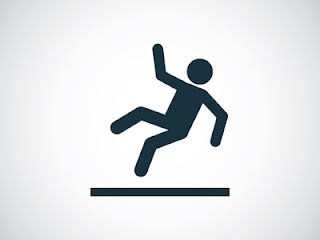If you attend meetings of addiction recovery regularly, let’s start by saying that you are on the right track; lasting recovery is ever-dependent on continued maintenance manifested by routine. Prayer, meditation, meetings, sponsorship, step work, and paying it forward are all necessary ingredients for achieving long-term recovery. Those who show up and follow direction, are the people who succeed at keeping their disease at bay. People who are unable to do such things are usually unable to stay the course.
When sobriety loses its priority (SLIP), it’s only a matter of time before one’s addiction resumes control over the dominion of Self. That which protects one from acting upon triggers and cravings loses its strength when one puts other things ahead of recovery. When that happens, relapse is typically a foregone conclusion. Those of you who attend meetings on a daily basis are guaranteed to find yourself in the company of people who at one point let their program take precedence; relapse is a part of many peoples’ recovery story. If you are new to the program, you might consider paying extra-special attention when people talk about a previous relapse; doing so will provide you with valuable insight into your program.
Relapse doesn’t need to be the end of one’s recovery; in fact, it can be the catalyst for an even stronger program moving forward. You’ve probably heard people say that recovery is about progress, not perfection. We, all of us in recovery, are human; each of us errs at times, and unfortunately, sometimes that leads to a relapse. What’s more, the slip-up itself is of little importance, it’s what one does afterward that is most salient.
Recovery 2.0
Everyone in recovery knows the dangers that the holiday season poses to one’s program, and each year during this time individuals slip up for any one of many reasons. Whatever the perceived causes of a relapse are, they can all be boiled down to people losing sight of their mission—live life on life’s terms, one day at a time.
Remember, committing oneself to living by the principles of recovery is about more than just not drinking or drugging. Programs of recovery are a model for living an honest, open, and productive life. In a sense, the Steps are a recipe for creating the best version of yourself; a person who people turn towards rather than detract. The road to relapse may start with neglecting meetings and step work, but it ends with one acting in ways reminiscent of their old behaviors. Selfishness, self-centeredness, and dishonesty rise inside people from the depths; the abyss of one’s psyche where the disease of addiction resides. If such traits are not nipped in the bud immediately, they place individuals on a fast track to relapse.
Recovering from Relapse
You might be a person who found trouble during the holiday season, and hopefully, you have already committed yourself to practicing the principles of recovery in all your affairs. If not, it’s likely a sign that you are still using and are letting fear or guilt block your way back to the program. Natural feelings to be sure, after all, nobody wants to identify as a newcomer in front of their peers, again. Please do not let that be a cause for staying “out there,” members of the recovery community don’t pass judgment on those who relapse. We open our arms lovingly, and eagerly await your return.
This is a program of fellowship, sometimes our peers fall or lose sight of their recovery. We help each other when things are rough, and encourage each other to continue moving forward. Recovery isn’t a competition, there are no winners or losers, and your popularity is not of any great concern. You are not the first to relapse, and sadly you’ll not be the last; be grateful that your relapse wasn’t fatal, get to a meeting, and grab a 24-hour chip or key chain. Your chair is waiting for you, and your experience will help someone else avoid a similar SLIP, believe it or not.
In some cases, more help is required; if you need extra assistance, please contact Celebrate Drug Rehab. We are standing by 24/7, 365 days a year.

